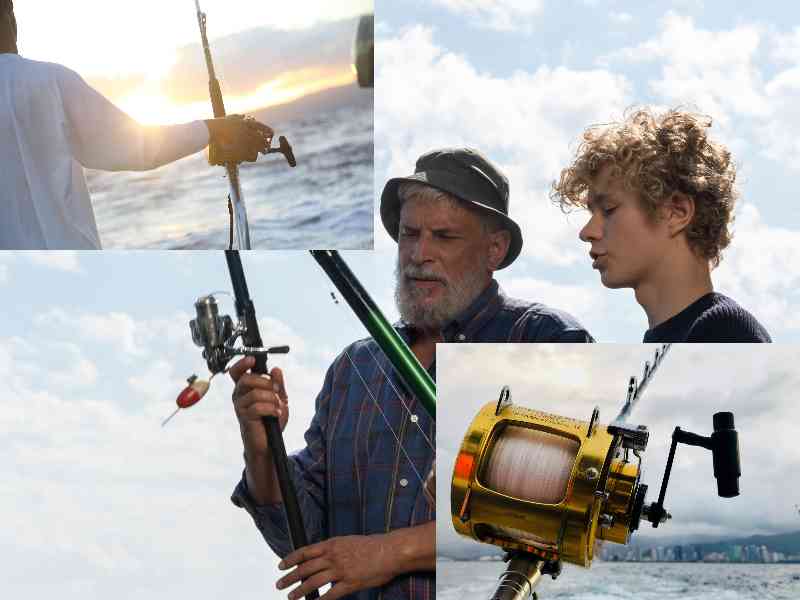
People worry about the dangers of deep-sea fishing. Did you know that the number one and two most serious injuries that happen during deep-sea fishing adventures are:
- Sunburn
- Dehydration
Both are very easy to prevent. So, slather on the SPF and be sure to drink plenty of water. A soda or two are okay, but water is better. If you are ready to learn more of the interesting deep-sea fish facts, keep reading.
1 The Fishing Constantly Changes
If you fish in the same spot, you will catch different fish each month. As the seasons’ change, so does the quality of the water, especially water temperature. In the summer, you find big game fish, like cobia. In the fall, as the water begins to chill, you find blackfish and bass. Know when the fish cycle through a favorite fishing hole allows you to prepare better to target those fish. It also means that if you want to target a specific fish species, you will know how to find it based on environmental conditions, such as water temperature.
2 The Deepest of the Deep
The deepest spot in the ocean is the Mariana Trench, which is 36,201 feet deep. That’s a lot of fishing line to get down that deep. Thankfully, the deepest deep sea fishing goes is about 2,000 feet deep. For the most part, very little of the ocean floor in the deeper zones have been explored. As a result, we know very little about what is down there. That is also one of the most exciting things about deep-sea fishing. Every once in a while, you catch something nobody has ever seen.
3 Stick to the Depths
Not every species of deep-sea fish comes inshore. Mostly that is because they prefer the colder water. Cold water holds more oxygen than warmer, shallow water. Therefore, to fish unique species of fish, you must head into the deeper water. Also, most deep-sea fish grow slowly and live for a very long time. That factoid is one reason deep-sea fish are so large; if you want a big Trophy Fish, head to the deep waters.
4 The Biggest Fish Every Caught in Saltwater
Deep-sea fishing fact #4 — The world record for the heaviest fish ever caught in saltwater is 2,664 pounds. It was more than a big fish, too — a great white shark off the coast of Australia in 1959. So what’s lurking off the Florida Coast? We know there are Goliath Groupers, which are protected, but a trophy shark is always possible.
5 Same Old Equipment Bigger Fish
For the most part, deep-sea fishing uses the same equipment you would use for inshore fishing. The difference is that the gear is heavy-duty to handle the bigger fish that swim in deeper water: Hammerhead sharks, Tuna, Marlin, and more. The biggest shark caught in Florida was 1,065 pounds and over 12-feet long. Heavy-duty fishing gear allows you to take on trophy-level fish and win.
6 Full Moon Fishing is Better in the Deep?
One of the more exciting saltwater fishing facts is that fishing at night by the light of a full moon can be better. The reason is that the extra light from the moon allows predatory fish to see their prey. Baitfish also see better, so they tend to head to the surface. Another aspect of the full moon is that tides are more substantial. With stronger tides, baitfish are more active, and the predators have to work a little harder. The full moon or even the new moon is an excellent time for deep-sea fishing. Be sure to check out some of the overnight charters that can introduce you to deep-sea fishing at night.
7. Fishing the Front
A deep-sea fishing fact about weather is to fish the weather front. When a front is coming onshore, bringing cold air, the deep-sea fish tend to feed actively. That is one of the best times to deep-sea fish. The active water and cool air cause the baitfish to become more active. As the front approaches, it pushed the fish to feed. When the front passes and the water calms down and warms up, the fish tend not to be that active, and it is harder to fish.
Deep Sea Fishing Basics
What to know about deep-sea fishing — Deep sea fishing occurs in waters that are more than 30 meters deep. The deep-sea fishing boats are more significant than those inshore to handle the rougher water and bigger storms. One of the prime reasons to go deep-sea fishing is to target more considerable and more aggressive fish. Hammerhead sharks, tiger sharks, great white sharks, Cobia, Marlin, Tuna are just some of the many species of fish you can target on a deep-sea fishing adventure. One of the best ways to experience deep sea fishing, even as a beginner, is to book a charter boat. The crew and captain will teach you how to fish, what to target and help you land big, fat, trophy fish.
